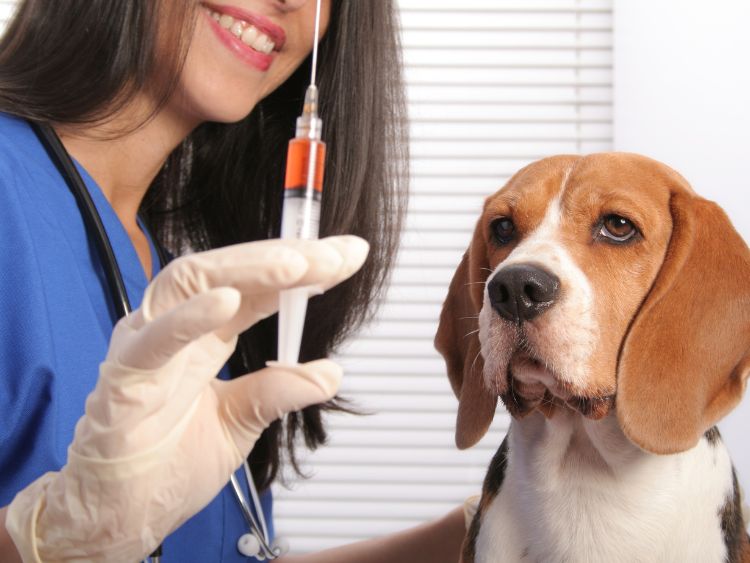In the dynamic world of pet care, one word often buzzes around with the weight of both concern and relief: vaccination. It’s a term that bridges worlds, connecting human health initiatives to our responsibility towards animals. Whether you’re a seasoned pet owner, a new enthusiast, or someone involved in animal welfare, understanding animal vaccination is not just beneficial—it’s essential. So, buckle up as we dive into the intriguing and lifesaving universe of animal vaccinations, decoding myths, unraveling facts, and exploring how these small shots are big heroes in our pets’ lives.
What Makes Vaccinations Crucial for Animals?
Imagine a shield, one that guards not just against the usual suspects but also against villains lurking in the shadows. That’s what vaccinations offer to animals: a defense mechanism that prepares their immune systems to fend off diseases. From common ailments to deadly infections, vaccines play a pivotal role in ensuring the health and longevity of domestic and wild animals alike.
The Immunity Blueprint
Vaccines work by mimicking diseases, tricking the body into producing a defensive response without exposing it to the full brunt of the illness. This process, fascinating in its complexity, is a testament to scientific advancements and a beacon of hope in animal health management.
The Spectrum of Animal Vaccinations
No two pets are the same, and similarly, vaccination needs vary widely across species, breeds, and even individual animals. Let’s break down the types of vaccines and their targeted recipients:
- Core Vaccines: Essential for all pets, protecting against diseases common in many environments.
- Non-Core Vaccines: Recommended based on specific risks, such as lifestyle or geographic location.
A Closer Look at Common Vaccines:
- Dogs: Rabies, Distemper, Parvovirus, and Hepatitis
- Cats: Rabies, Feline Herpesvirus, Calicivirus, and Panleukopenia
- Horses: West Nile Virus, Tetanus, and Equine Encephalitis
- Farm Animals: Foot-and-mouth disease, Brucellosis, and Avian Influenza
Tailoring the Vaccination Schedule
Determining the right time for vaccination is a dance between the pet’s age, health status, and exposure risk. Puppies and kittens, for instance, usually start their vaccination series around 6 to 8 weeks of age, with boosters following at set intervals.
FAQs in the Realm of Animal Vaccination
- Why vaccinate your pets? Vaccinations protect against severe diseases, some of which can be fatal or severely debilitating. Plus, they often prevent diseases that can be transmitted to humans.
- Are there side effects? Like any medical treatment, vaccines can have side effects, though serious reactions are rare. The most common are mild and short-lived, such as soreness at the injection site or slight fever.
- How often do pets need to be vaccinated? It varies. After the initial series, most vaccines require boosters every 1-3 years. Your vet can provide a tailored schedule.
- Can indoor pets skip vaccinations? Even indoor pets can be exposed to viruses and bacteria, making vaccinations crucial for them as well.
Keeping Up with the Shots: A Community Effort
Vaccinating pets isn’t just an individual responsibility; it’s a collective action that benefits the entire community. Herd immunity, where a critical mass of the population is immunized, can prevent outbreaks, protecting even those animals that can’t be vaccinated due to health issues.
Navigating Challenges and Misconceptions
Despite the clear benefits, vaccination hesitancy exists in the animal world, much like in human healthcare. Combating misinformation and educating pet owners about the science and safety of vaccines is crucial.
Conclusion: A Shot of Prevention
In the tapestry of animal care, vaccinations are vibrant threads woven tightly into the fabric of veterinary medicine. They represent a remarkable blend of science, compassion, and foresight—a trinity that guards the well-being of our animal companions. As pet owners and animal lovers, embracing the concept of animal vaccination not only reflects our love for our pets but also our commitment to a healthier, happier world for all creatures.
In wrapping up, remember that animal vaccination is more than just a medical procedure; it’s a critical element in the mosaic of animal health. Ensuring your pets are vaccinated according to the recommended schedules is akin to gifting them a layer of invisible armor, one that shields them from unseen dangers and paves the way for a life filled with joy, play, and companionship.
With awareness, education, and action, we can all contribute to the grand narrative of animal health and welfare, ensuring our furry and feathered friends enjoy the quality of life they so richly deserve. Let’s not forget, in the end, every shot, every vaccine, is a love letter to the animals in our care.

